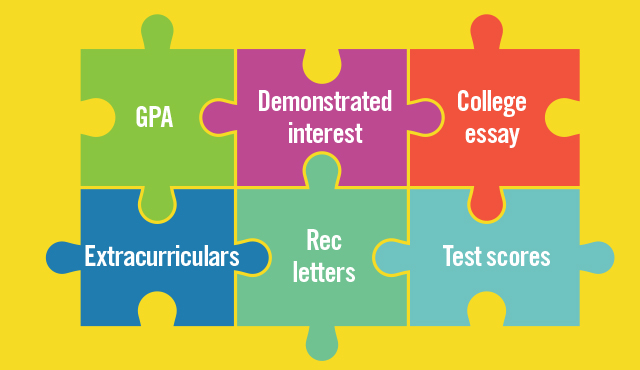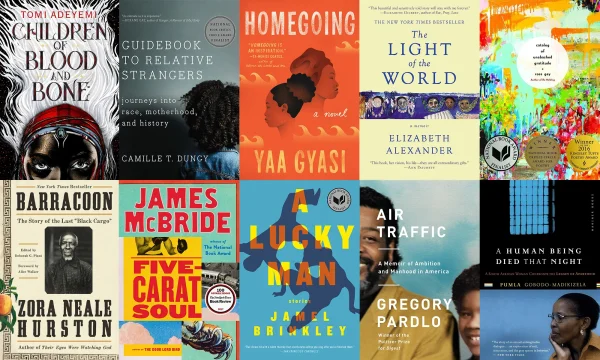Covid Meets 2020 College Admissions Trends
A puzzle visual representing the many components typically considered in a first-year college applicant.
Squinting hard, I peer at my brightly-lit Chromebook screen, trying to get the best view of a virtual college tour that is being displayed. For the graduating class of 2021’s seniors, the Covid-19 pandemic has hit students in a unique way. Whether by placing additional financial strain on family budgets, restricting many students’ plans for in-person college tours or introducing unique application trends due to test-optional policies, the pandemic has brought a new level of uncertainty to the daunting task of applying for college.

In regards to this year’s college application trends, one might assume that less students would apply for college due to financial issues or that more students would be applying for in-state universities due to the inaccessibility of visiting a college far away from home. However, while this appears to be the case for many universities, top universities are actually experiencing the reverse: a dramatic increase in applicants. Although many negative factors are interfering with the current application process, other somewhat-positive factors are presenting themselves as well, such as this year’s phenomenal shift towards holistic, test-optional admissions. With many students having had only one try on their standardized test (ex. SAT or ACT) or unable to take a test at all due to test center closures caused by Covid, many colleges switched to test-optional (not requiring students to submit their scores for these tests) or test-blind (no score will be considered) policies. For the student who earns high test scores and believes that their score demonstrates their knowledge, having few chances to take a standardized test can prevent the opportunity to include a good test score in their application, something that could improve their chances of college admission. However, for the student with strong grades and extracurricular activities that only lacked a great test score, their chances of college admission were greatly increased due to the new lack of focus on these test scores.
As stated within the December 2020 Josh Stephens article, “2020 Early College Application Numbers Defy Expectations,” many prestigious universities such as Northeastern University, Boston University, and Massachusetts Institute of Technology witnessed drastic increases in both Early Action and Early Decision applicants, a trend that will likely carry on into the regular decisions admissions pool in late March, when regular decisions are typically released. For example, as found on MIT’s website, nearly 15,000 students applied for early admission for spots in the incoming freshman class of 2025, an increase of approximately 62% from previous years. What is the underlying reason for this admissions trend? Although it would seem difficult to prompt such drastic changes in application trends for an admissions process that has existed for many years, I believe that the apparent increase in college applications for more competitive universities can ultimately be attributed to this new holistic approach to college admissions. Later in his article, Stephens perfectly sums up my thoughts towards the matter by explaining, “Students with relatively low [test] scores who might otherwise have considered their applications longshots felt freer to apply on the merits of their grades (and everything else).” By focusing on a student’s essays, talents, and personality more than just their standardized test score, this year’s admissions cycle is unique and has already prompted many institutions to permanently switch to test-optional practices for future admissions cycles. Most notably, the University of California’s trailblazing plan to go test-optional for the graduating classes of 2021 and 2022 and later test-blind for the classes of 2023 and 2024.
So, with the many changes occurring during this year’s admissions process, what is your point of view on this subject? What are your thoughts on colleges’ new shifts towards test-optional instead of traditional testing requirements? Ultimately, as the years evolve and bring new events, so will the college admissions process. In turn, new testing policies and admissions standards will alter the way that many students interact with the American education system and the ever-changing value of standardized tests.








